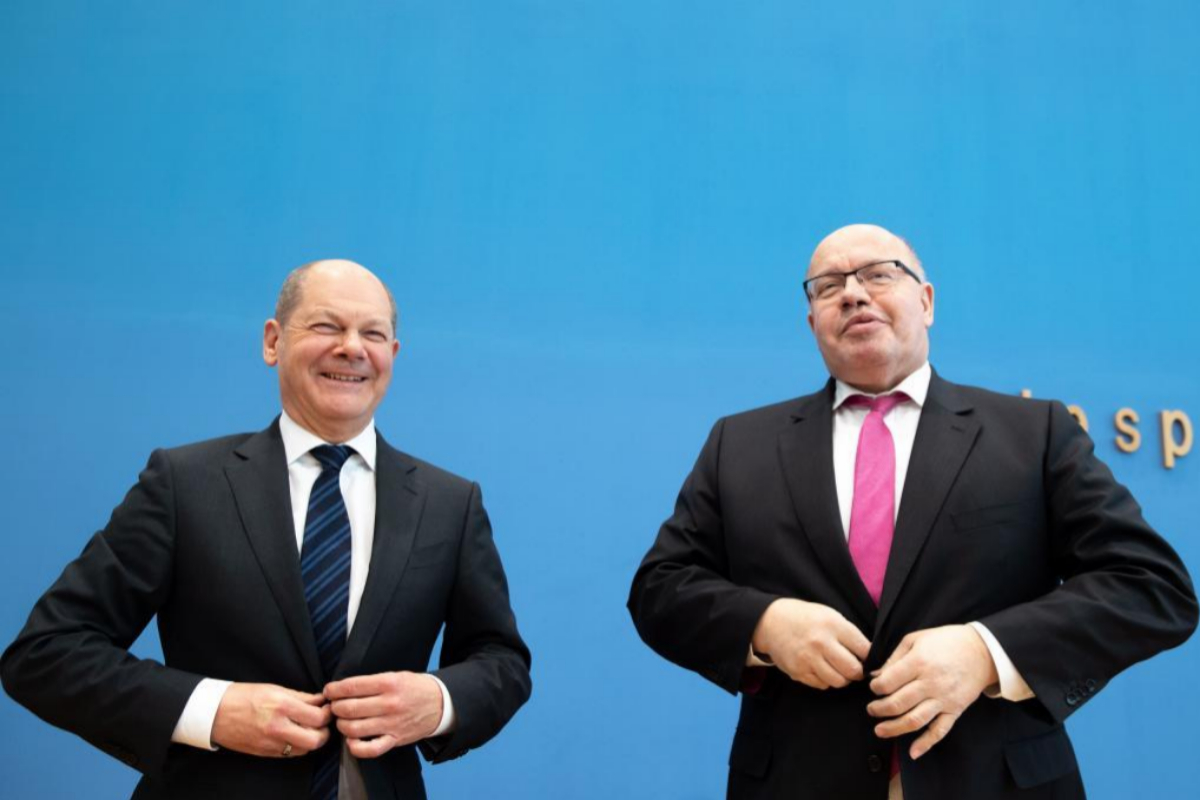- Direct Latest Coronavirus News
Germany has launched a shock economic plan to alleviate the economic effects of the coronavirus, which provides for the "unlimited" credit granted to companies, the extension of fiscal periods and subsidies to protect the employment and income of workers affected by the reduction of days. The finance ministers, Olaf Scholz , and the economy ministers, Peter Altmaier , announced today that they present this battery of measures, which will support budgetary "flexibility" so that all member states can do everything necessary against the pandemic.
As for the measures at the national level, Altmaier declared that the Government will make available to companies in difficulties up to 500,000 million euros through the guarantee framework established by the German Development Bank (KfW). Initially, $ 20 billion will be released.
"We will demonstrate that we are stronger than the problem we face," Scholz said, noting that all companies, small, medium and corporations, will be able to access the aid of the Development Bank. He specified that "there is no maximum limit to the amount of the credit that KfW can grant".
"This crisis affects us all," emphasized the minister, who said he understood the feeling of vertigo produced by the current situation, which he described as serious. And as Chancellor Angela Merkel said a few days ago, she assured the Government that it will do "whatever is necessary at all times" to preserve public health, first, and protect the business fabric and employment.
Transversal and in stages
The economic shield presented by the Finance and Economy holders is transversal and in stages , the first of which refers to the use of KfW guarantees and loans against short-term liquidity problems, as well as subsidies for the implementation of short-time working hours. This measure is preceded by a law that facilitates access to public subsidies to compensate for salary cuts that lead to reduced working hours.
At the same time, a series of fiscal measures will be implemented to improve the liquidity position of the companies affected, facilitating the postponement of the payment of taxes and delaying the payment of penalties until the end of 2020, in addition to facilitating early returns to taxpayers.
At the European level, Scholz assured that he will defend that the 27, regardless of their fiscal margin and deficit criteria, "also have the possibility of doing what they need."
Unit
The EU economy and finance ministers will discuss measures against the coronavirus crisis on Monday, a debate during which Scholz plans to send a clear message to his colleagues. That the coronavirus crisis requires not only coordination of economic and fiscal policies , but also ensuring the "stability" of the bloc.
The finance minister repeatedly avoided clearly answering journalists' questions about whether his defense of the "zero deficit" had died with this message, but insisted that the coronavirus health and economic crisis is "extraordinary."
Scholz recognized in this sense that "it is not unthinkable" that Germany has to resort to the markets to face the crises and to get into debt
Altmaier, for his part, stressed that the coronavirus pandemic has created an extraordinary situation and it is necessary to do what is necessary without thereby damaging the underlying philosophy that in normal times governs fiscal policy in Germany and Europe. Meanwhile, the President of the European Commission, Ursula von der Leyen, announced from Brussels her decision to relax the debt criteria of the Stability and Growth Pact.
Germany, the main defender in Europe of budgetary stability, has chained eight consecutive years without incurring a deficit and managed to reduce its public debt to below 60% of gross domestic product (GDP).
According to the criteria of The Trust Project
Know more- Germany
- Angela Merkel
- Coronavirus
- Covid 19
CitizensInés Arrimadas reaches out to Pedro Sánchez and offers him to approve "some National Emergency Budgets" for the coronavirus
SaludMadrid closes the terraces due to the coronavirus and recommends closing the bars
GermanyGerman parliament rejects Greens' proposal to host 5,000 vulnerable refugees

